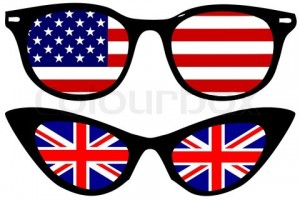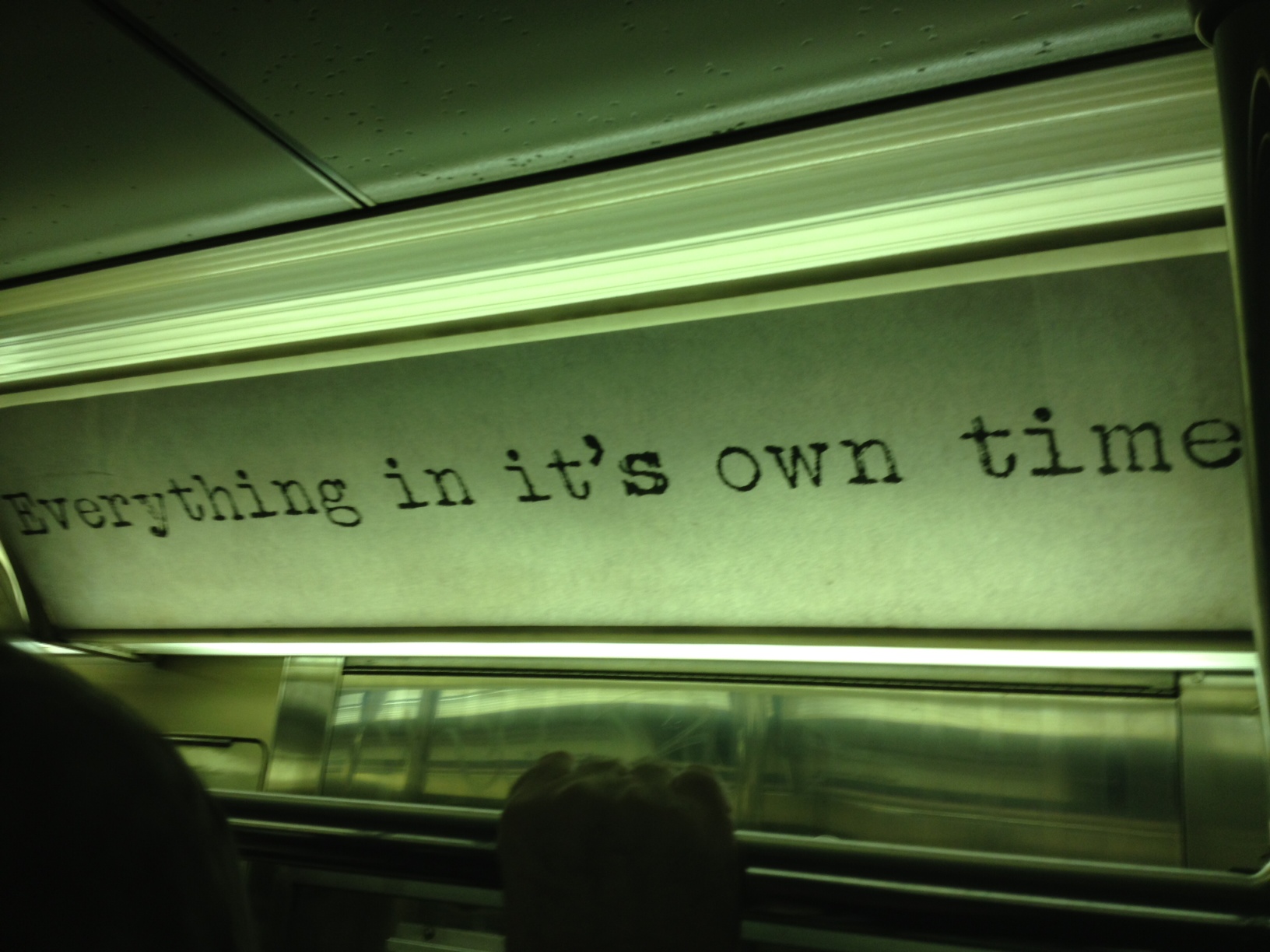
“May you stay forever young,” sang Bob Dylan in 1974. “I’m forever blowing bubbles,” chant the Liverpool football fans in their improbable anthem. These two forevers, in their wildly different musical contexts, also happen to have different meanings — and were Dylan an Englishman, his poignant song might well have had three words in its title instead of just two.
One word or two for certain word pairs is one of those sticky subjects that divides not just writers, language commentators and editors but also those common linguistic national adversaries, the Brits and the Yanks. Yes, it’s something else we can’t quite agree on, especially because there are often no hard and fast rules about these word pairs even within our own tribes. Because these often subtle discrepancies happen only on the page (two words spoken aloud sound the same whether together or apart), and therefore the argument can’t be settled by what ‘sounds right’, there’s more scope for argument and debate on theoretical grounds.
Here are some of the word pairs that can work both ways, starting with the ones that don’t generally start arguments (ie. we all get the difference between one word and two), followed by those for which the decision to combine or separate the words comes down to questions of both meaning and usage.
There are many words — like onset (meaning either “beginning” or “attack”) — for which the necessity to keep the component words (in this case on and set) together is not in question, especially if those smaller words don’t work on their own in the given context. Other examples are foreshadow, toothless, deadpan. But if the word makes sense when divided in two, it gets more interesting. Let’s take already and maybe. Each clearly started life as two words that came together over time in marriages of convenience and economy, and now their modern meanings differ substantially from that of their respective two-word equivalents. “We’ve eaten already” and “The kids are all ready to go home”: That’s a pretty straightforward distinction, isn’t it? As is “You may be excused from the table” and “Maybe she’s just not that into you.” But then it starts to get trickier.
Take altogether vs. all together. Here the difference in meaning becomes slightly more blurred, but is still distinct. Altogether is an adverb meaning “completely, to the full extent, all told, “: “She stopped being able to drive altogether.” When referring to a group acting collectively, the two words come into play. “He asked the musicians to play all together.” There is still sufficient room between these definitions to make a spelling distinction unambiguous. Anyway and any way fall into this category too: the first is an adverb meaning “regardless”, or “in any event”, whereas the separate words pair an adjective and a noun to denote multiple manners of approaching a task or direction. “Although we had missed the connection, she urged us to get to the station anyway, in any way we could manage.” The two forms aren’t interchangeable.
With onto and on to it gets even more blurry and a little complicated. The single word is a preposition meaning “moving to a place on”: “She climbed up onto his lap.” (There is also an informal meaning of onto when combined with the verb “to be,”meaning either you know something about someone who has done wrong — “I’m onto you”, or you’ve got an idea or concept that might lead to something else — “We’re onto something here.”) This preposition can also be spelled as two words, just to make things difficult. However, as the Oxford American Dictionary points out, “it is important to maintain a distinction between the preposition onto or on to and the use of the adverb on followed by the preposition to: she climbed onto (sometimes on to) the roof, but let’s go on to (never onto) the next chapter.” Think about what you do at the end of a meal: do you go on to dessert, or onto dessert? It would be a messy challenge to do the second. In to and into have the same issues.
I say two words, you say one
Now we enter dangerous territory where the Americans and the Brits start to bicker — with writers of American English invariably opting for the one-word option if there’s room for debate, and Brits still (sometimes) preferring the conservative separation into two words when appropriate.
Anymore and any more illustrate this simple trans-Atlantic usage rift. It is listed as two words in the OED as an adverb meaning “to any further extent, any longer” (with a q.v. reference to anymore “especially N. America” directing the reader to the two-word entry); the Oxford American Dictionary, contrary to its English cousin, gives its main entry to the single word. Each to his own…
Now we move to examples of words that distinguish between adjectival and adverbial forms, using one word for the former and two for the latter — or at least that was how it used to be done. This is changing rapidly, on both sides of the Atlantic (but more quickly in North America). Onstage/on stage is a good illustration. In British English, a single word is reserved solely for the adjective: “The onstage narrator was very effective.” The OED hyphenates the two words and lists only the adjectival definition. Adverbially, Brits tend to stick to two words: “The narrator walked briskly on stage.” However, American English recognizes the single word as both adjective and adverb: “He sang the whole song onstage.” Everyday/every day, online/on line, and underway/under way are all variations on this theme, with Brits tending to separate the words for adverbial use (“Every day she set out in her everyday clothes”), and Americans opting for the single word in any context (“she sang the same song everyday“). But the Brits are quickly following suit, perhaps realizing that Americans have the luxury of not needing to understand and identify sometimes complex grammatical forms in order to determine the correct usage.
For ever and forever are a different kettle of fish. The Brits still distinguish between the adverbial two words and the single-word adjective — and they read quite different meanings into each. The OED defines the single word as an adjective meaning “continually” or “persistently”: hence our Liverpudlians forever blowing their bubbles (or Jonny forever blowing his nose). But the adverb — meaning “for all future time” (or more colloquially “for a long time”) — is often spelled as two words. Britain’s National Trust, which owns and maintains many of the country’s historic properties, has a motto running through its literature for visitors and potential funders: “For Ever, For Everyone“. Not so in the U.S.: there the single word is used invariably, whatever the context. Bob Dylan was clearly not beseeching the subject of his song to continually stay young, but rather to stay young for all future time. Fowler, in his treatise on the subject, cited Calverley’s 19th-century poem Forever*, which foretold in jocular but ominous tone the merging of the two words. Fowler dismissed the poet’s fears, optimistically stating that “[his] fears have proved groundless. ‘Two words’ says the Authors’ and Printers’ Dictionary firmly, a hundred years later.” Little did Fowler know that Calverley’s prophecy was correct, and that forever indeed looks set to oust the two-word adverb — on both sides of the Atlantic.
Finally, our favorite ‘word-that-shouldn’t-be-a-single-word-but increasingly-is’: alright. Having the same effect on many of us as the sound of fingernails on a blackboard does, that ugly misspelling is fast gaining ground, everywhere. According to the OED, “the merging of all and right to form the one-word spelling alright is first recorded toward the end of the 19th century (unlike other similar merged spellings such as altogether and already, which date from much earlier). There is no logical reason for insisting that all right be two words when other single-word forms such as altogether have long been accepted. Nevertheless, although found widely, alright remains non-standard.” That’s what the OED says now; let’s see if its crystal ball is as off-base as Fowler’s was about forever …
Forever
by Charles Stuart Calverley
"Forever": 'tis a single word!
Our rude forefathers deemed it two:
Can you imagine so absurd
A view?
"Forever"! What abysms of woe
The word reveals, what frenzy, what
Despair! "For ever" (printed so)
Did not.
It looks, ah me! how trite and tame!
It fails to sadden or appal
Or solace--it is not the same
At all.
O thou to whom it first occurred
To solder the disjoined, and dower
The native language with a word
Of power:
We bless thee! Whether far or near
Thy dwelling, whether dark or fair
Thy kingly brow, is neither here
Nor there.
But in men's hearts shall be thy throne,
While the great pulse of England beats.
Thou coiner of a word unknown
To Keats!
And nevermore must printer do
As men did long ago; but run
"For" into "ever," bidding two
Be one.
"Forever"! passion-fraught, it throws
O'er the dim page a gloom, a glamour:
It's sweet, it's strange; and I suppose
It's grammar.
"Forever"! 'Tis a single word!
And yet our fathers deemed it two:
Nor am I confident they erred;
Are you?







